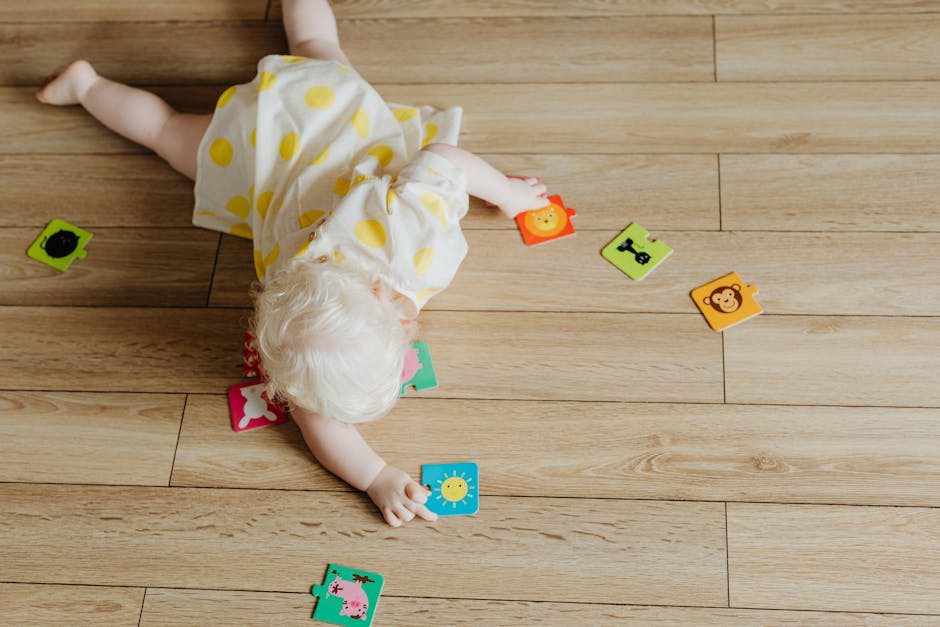In the colorful world of toys and technology, there’s one simple, yet profoundly beneficial, activity that often gets overlooked: toddler puzzles. These aren’t just toys; they are tools that awaken, shape, and nurture young minds in multifaceted ways. Dive into the surprising benefits of integrating puzzles into your toddler’s playtime.
Enhancing Cognitive Skills
Puzzles serve as a natural gateway for children to develop critical cognitive skills from a very young age. Engaging with puzzles requires toddlers to recognize shapes, colors, and patterns, a fundamental process that underpins the ability to read, write, and understand numbers later in life. As children attempt to fit pieces together, they learn the concepts of ‘whole’ and ‘part’, enhancing their cognitive abilities in a playful and enjoyable manner.
Moreover, puzzles introduce toddlers to problem-solving strategies as they figure out how to make pieces fit together correctly. This trial-and-error process not only boosts their cognitive skills but also instills a sense of accomplishment and confidence once the puzzle is completed successfully. Whether it’s a simple shape sorter for a younger toddler or a more complex jigsaw puzzle for an older child, each puzzle offers a unique challenge that aids in brain development.
Promoting Hand-Eye Coordination
The act of manipulating puzzle pieces requires fine motor skills and precise hand-eye coordination. Toddlers learn to assess spatial relationships and orient pieces to fit them together. This coordination is crucial, as it’s directly linked to other physical and cognitive skills, including writing, typing, and various sports. By regularly interacting with puzzle pieces, toddlers enhance their visual-motor integration, which is the ability to coordinate visual information with physical movement.
As toddlers pick up, grasp, and maneuver puzzle pieces, they also improve their dexterity and finger strength. These activities might seem simple, but they’re actually laying the groundwork for handwriting and other important school-related skills.
Improving Problem-Solving Abilities
Puzzles challenge toddlers to think critically and devise solutions, fostering early development of problem-solving skills. Through puzzles, children are faced with a goal to achieve (completing the puzzle) and must determine the steps to reach that goal, involving decision-making and strategy planning. This not only aids in their ability to solve puzzles but also prepares them for real-life challenges that require similar strategic thinking and problem-solving skills.
Developing Fine Motor Skills
Handling puzzle pieces serves as an exceptional exercise for developing toddlers’ fine motor skills. These are smaller, more precise movements focusing on the muscles in the fingers, hands, and wrists. Engaging with different shapes and sizes of puzzle pieces enhances these skills, which are vital for tasks such as holding a pencil, using scissors, or buttoning a shirt. The intricate movements required to manipulate puzzle pieces are performed repeatedly, which strengthens hand muscles and improves dexterity.
Fostering Social and Emotional Growth
When toddlers work on puzzles with others, they engage in social interactions, learning to communicate and collaborate. This teaches them patience, turn-taking, and the art of sharing as they work together towards a common goal. Additionally, puzzles offer an emotional boost; completing a puzzle provides a sense of achievement and pride, enhancing a child’s self-esteem and motivation. The challenge of puzzles also teaches resilience, as toddlers learn that mistakes are a part of learning and can be corrected through persistence and determination.
Unveiling the Magic of Puzzles
Toddler puzzles are more than just playtime accessories; they are invaluable tools for developmental milestones. From cognitive skills and hand-eye coordination to problem-solving abilities, fine motor skills, and even social and emotional learning, puzzles offer a broad spectrum of benefits. Integrating toddler puzzles into daily activities is not just an investment in your child’s early development; it’s a celebration of growing, learning, and discovering the world one piece at a time.


